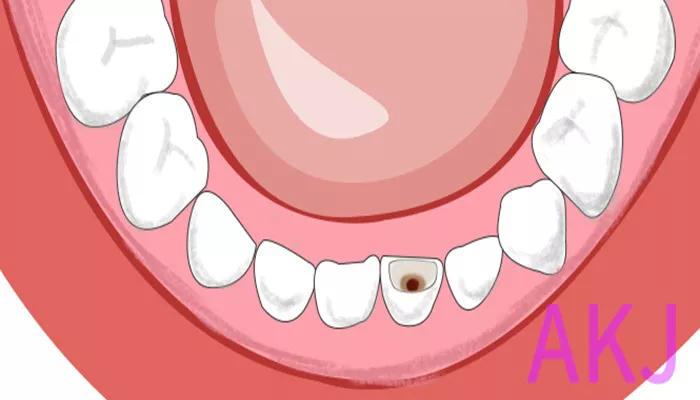Understanding the prevalence and nature of tooth decay is crucial for maintaining oral health. While tooth decay is a common dental issue, it is important to clarify whether it can be considered “normal.” This article will provide a detailed introduction to tooth decay, explore its causes, risk factors, symptoms, and the importance of prevention and treatment. By the end, you will have a clearer understanding of whether tooth decay is indeed “normal” and what steps you can take to manage and prevent it.
Understanding Tooth Decay
1. What is Tooth Decay?
Tooth decay, also known as dental caries, is damage to a tooth’s surface or enamel. It occurs when bacteria in the mouth produce acids that attack the enamel, leading to the breakdown of tooth structure. If left untreated, tooth decay can progress to form cavities, which are holes in the teeth. Cavities can cause pain, infection, and even tooth loss if not addressed promptly.
2. Causes of Tooth Decay
The primary cause of tooth decay is the interaction between bacteria in the mouth, food, and saliva. Here’s a breakdown of how this process works:
Bacteria and Plaque Formation: Our mouths are full of bacteria, some of which are beneficial, while others can be harmful. Harmful bacteria combine with food particles and saliva to form a sticky film called plaque.
Acid Production: The bacteria in plaque use the sugars and starches from the food and drinks we consume to produce acids. These acids begin to eat away at the minerals in the enamel, weakening its structure over time.
Plaque and Tartar: If plaque is not removed through regular brushing and flossing, it can harden into tartar, which is more difficult to remove and can irritate the gums, leading to gum disease.
3. Role of Fluoride
Fluoride is a mineral that plays a crucial role in preventing tooth decay. Fluoride is found in toothpaste, water, and other dental products. It helps the enamel repair itself by replacing the minerals lost due to acid attack. The natural process of losing and regaining minerals in teeth occurs throughout the day, but without proper care and excessive consumption of sugary or starchy foods, the enamel will continue to lose minerals, leading to decay.
Risk Factors for Tooth Decay
While tooth decay is common, certain individuals are at a higher risk of developing it. The main risk factors include:
Poor Oral Hygiene: Not brushing and flossing regularly allows plaque and tartar to build up, increasing the risk of decay.
High Sugar and Starch Intake: Frequent consumption of sugary and starchy foods and drinks provides bacteria with a constant supply of fuel to produce acids, accelerating the decay process.
Lack of Fluoride: Inadequate exposure to fluoride can weaken the enamel, making teeth more susceptible to decay.
Saliva Production: People with reduced saliva production due to medications, certain diseases, or cancer treatments have a higher risk of decay. Saliva helps to wash away food particles and neutralize acids.
Age: Babies and toddlers who drink from bottles, especially if given juice or bottles at bedtime, are at risk because their teeth are exposed to sugars for long periods. Older adults may also have an increased risk due to receding gums and wear on their teeth, exposing root surfaces to decay.
Symptoms of Tooth Decay and Cavities
In the early stages of tooth decay, symptoms may be absent or mild. However, as decay progresses, it can cause:
Toothache: Pain in the affected tooth, which may be sharp, dull, or throbbing.
Sensitivity: Sensitivity to sweets, hot, or cold temperatures.
Visible Signs: Discoloration, such as white spots where minerals have been lost, or dark spots indicating advanced decay.
Cavities: Formation of holes in the teeth, which may require fillings or more extensive treatment.
Is Tooth Decay Normal?
The question of whether tooth decay is normal is complex. From a dental health perspective, tooth decay is not a normal or inevitable part of aging. It is a preventable condition that occurs due to a combination of factors, including poor oral hygiene, diet, and lifestyle choices.
However, the reality is that tooth decay is highly prevalent. According to dental health statistics, tooth decay is one of the most common chronic conditions affecting children and adults worldwide. This high incidence may give the impression that tooth decay is “normal,” but it is important to emphasize that it is not a necessary or acceptable part of oral health.
Importance of Prevention and Treatment
Given the impact of tooth decay on oral health and overall well-being, it is crucial to take steps to prevent and manage it.
Here are some key strategies:
Good Oral Hygiene: Brush your teeth at least twice a day with fluoride toothpaste and floss daily to remove plaque and food particles.
Balanced Diet: Limit sugary and starchy foods and drinks, and opt for a balanced diet rich in fruits, vegetables, lean proteins, and dairy products.
Regular Dental Check-ups: Visit your dentist regularly for professional cleanings and check-ups. Early detection and treatment of decay can prevent more severe problems.
Fluoride Supplements: If you live in an area with low fluoride levels in the water, consider using fluoride supplements as recommended by your dentist.
Sealants and Fluoride Treatments: Dental sealants can protect the chewing surfaces of teeth from decay, while fluoride treatments can strengthen enamel and prevent cavities.
By adopting these preventive measures and seeking timely treatment, you can significantly reduce your risk of tooth decay and maintain healthy teeth and gums. Remember, tooth decay is not normal, but it is manageable with proper care and attention.
Conclusion
In conclusion, tooth decay is a common dental issue, but it is not normal. It is caused by a combination of factors, including poor oral hygiene, diet, and lifestyle choices. By understanding the causes, risk factors, and symptoms of tooth decay, and taking steps to prevent and treat it, you can maintain healthy teeth and gums. Regular dental check-ups, good oral hygiene, and a balanced diet are essential components of a healthy mouth.
Related topics:

